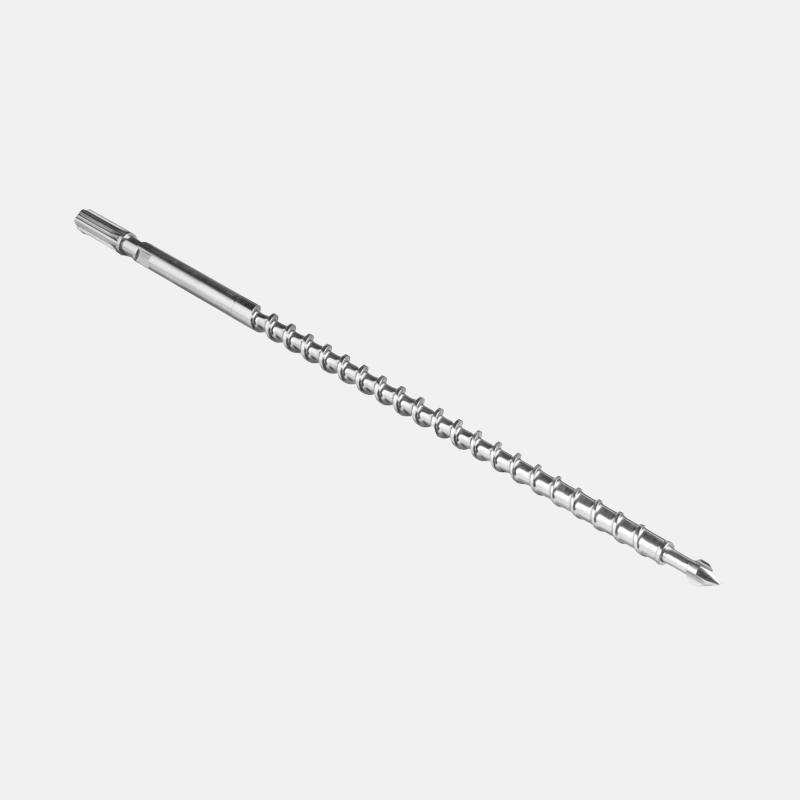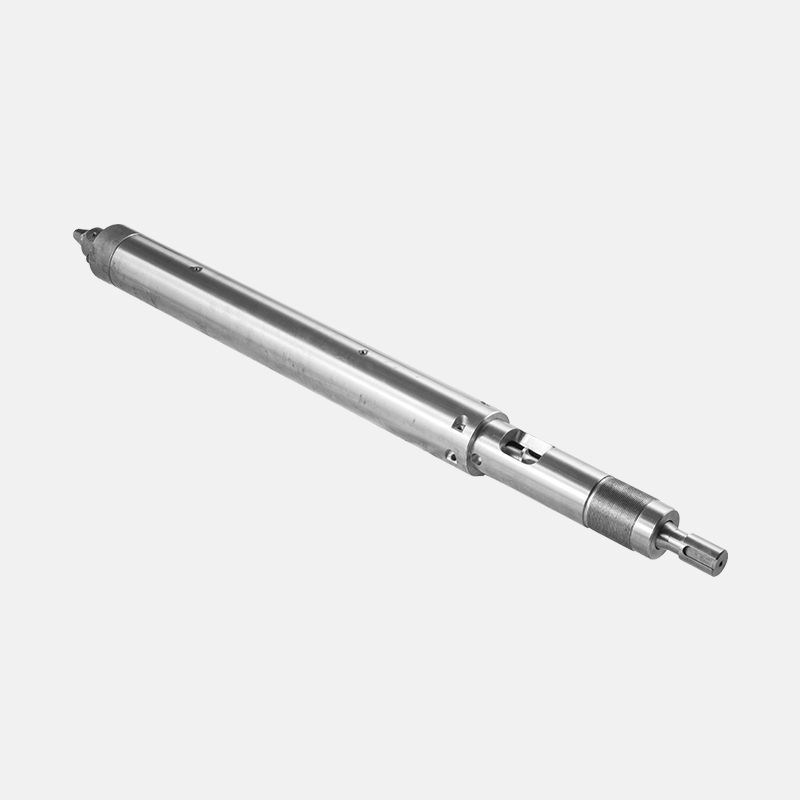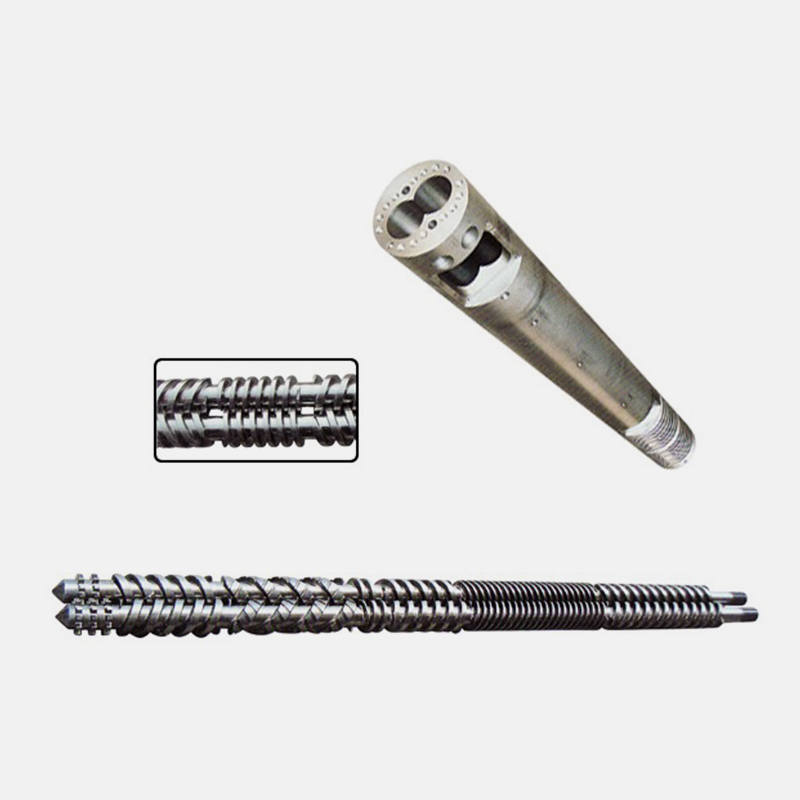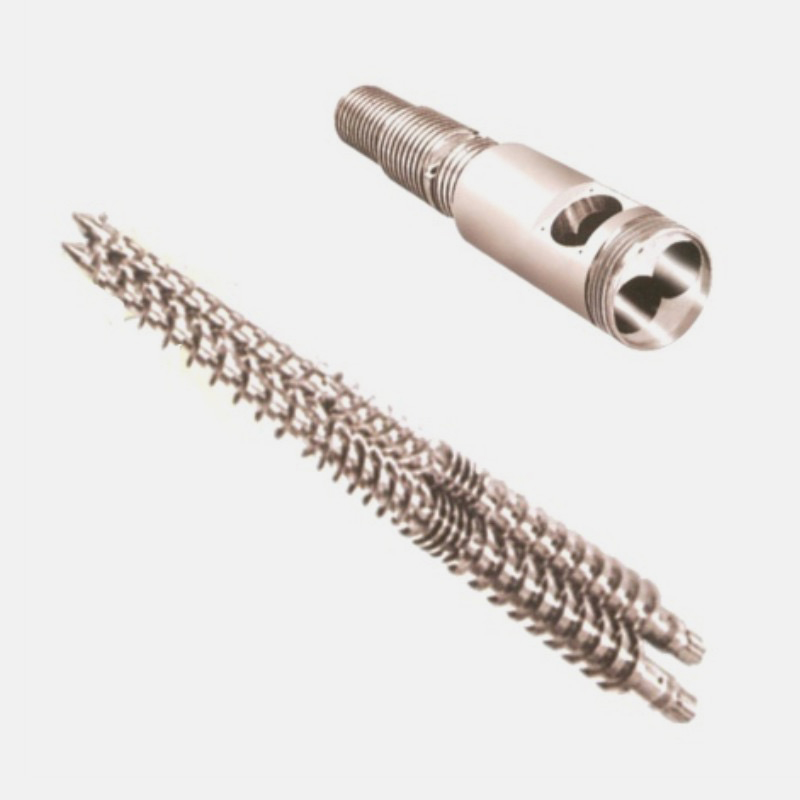Design:
A
conical twin screw barrel consists of two screws with a tapered geometry, which means that the diameter of the screws decreases from the feeding end to the discharge end. The screws rotate in opposite directions and intermesh with each other, forming a helical channel for the material to flow. The number and pitch of the flights, the depth and shape of the grooves, and the diameter and length of the screws can vary depending on the specific application.
The design of a conical twin screw barrel can affect the performance of the extrusion process in many ways. For example, a longer barrel can provide better mixing and melting capabilities, while a shorter barrel can result in a higher output rate. The choice of the screw configuration can also influence the quality of the final product, such as its surface finish, dimensional accuracy, and mechanical properties.
Material:
Conical twin screw barrels are typically made of high-strength and wear-resistant alloys, such as nitride steel, tool steel, or bimetallic materials. These alloys can withstand the high temperature and pressure generated by the extrusion process, as well as the abrasion and corrosion caused by the plastic resin and additives.
The selection of the material for a conical twin screw barrel should consider several factors, such as the type and grade of the plastic material, the processing conditions, and the budget. For example, a barrel made of nitride steel can provide excellent wear resistance and thermal stability, but it can be more expensive than a barrel made of tool steel. A bimetallic barrel can offer a compromise between cost and performance by using a wear-resistant alloy for the inner surface and a tougher alloy for the outer surface.
Application:
Conical twin screw barrels are used in a wide range of plastic extrusion applications, such as PVC pipe extrusion, window profile extrusion, sheet extrusion, and blown film extrusion. Each application has specific requirements for the screw design, material, and processing parameters, depending on the properties and processing behavior of the plastic material.
For example, in PVC pipe extrusion, a conical twin screw barrel with a shallow groove depth and a high screw pitch can provide good plasticization and homogenization of the material, resulting in a high-quality pipe with smooth surface and uniform wall thickness. In blown film extrusion, a conical twin screw barrel with a long melting section and a low compression ratio can achieve a high output rate and a good bubble stability, producing a thin and strong film.
Conclusion:
Conical twin screw barrels are essential components of plastic extrusion machinery, and their design, material, and application can significantly affect the performance and quality of the extrusion process. By understanding the principles and considerations of conical twin screw barrels, manufacturers and users of plastic extrusion machinery can make informed decisions on selecting, designing, and optimizing these components for their specific needs.
Conical twin screw barrel for UPVC plastic pipe machine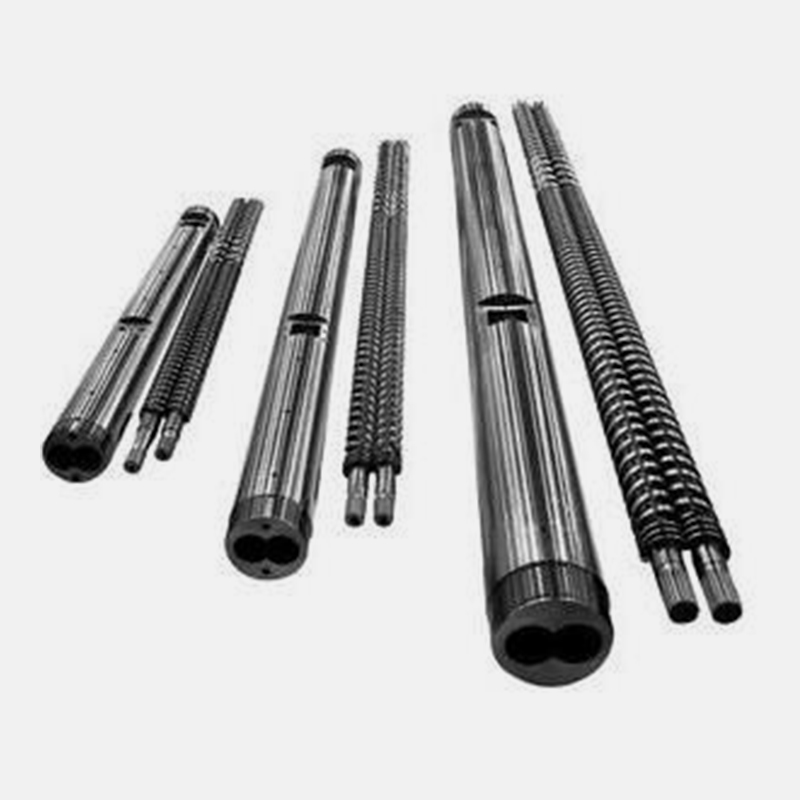
Conical twin screw featurs:
1:Conical twin screw cores water internal circulation series
2:Conical twin screw cores oil cold outer cycle
Technical Data:
Depth of nitration case:0.5-0.8mm
Hardness of nitration:HV950-1020
Roughness of the surface:Ra 0.4um
Screw straightness: 0.015mm/m
thickness of double alloys: 2-3mm
Hardness of double alloys:HRC58-62
Suitable plastic material: PP,PE,ABS,AS,PS etc.
Material: 38CrMoALA
Advantage:
1) With high wear resistance and anti-corrosion
2) Through processing ,it can be prolong use life for screw and barrel
3) Cold and heat spraying for hard metal process
4) High-frequency quenching technology
5) Advanced nitriding technology
6) Processing and manufacturing process for Bimetallic

 English
English 简体中文
简体中文 España
España عربى
عربى

